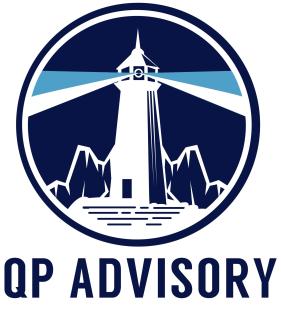
How to Crack Into the World of Financial Planning
Millennials get a bad rep. Too often does the media say that they’re lazy, unmotivated to work hard, and frivolous with their spending habits. On a weekly basis, absurd articles pop up criticizing lifestyles, going as far as saying that buying avocado toast is the reason so many can’t afford a house… Ridiculous, right?
Financial literacy needs to be integrated into the education system, until then, savings, 401Ks, retirement planning all seem like too daunting of problems to tackle. So the question looms, how does the average millennial - aka young person - crack into the world of financial planning?
Sadly, the answer isn’t simple. But there are two things you can do to turn that mountain into a molehill:
1. Approach your finances realistically
2. Knowledge is POWER
Overspending is at the center of so many financial issues. Being extremely candid about your debt, salary (after taxes) and debt will give you a clearer picture of short term goals to attack. According to RBC, “What’s important to recognize, however, is that defining your short- and long-term financial goals is a very beneficial starting point to map out concrete plans for reaching those goals. Further to identifying them, there is also a variety of research that indicates those who write down their goals have a better chance of achieving them. Some of the factors that contribute to this improved achievement rate include increased accountability, improved ability to track progress, development of benchmarks or check points along the way, and motivation to stay on course. And regardless as to whether those goals are more immediate or farther into the future, clearly defining and recording them provides an important sense of direction for putting appropriate strategies in place.1”
And most importantly, knowledge is power, especially when it comes to your finances. There are more resources than ever that can provide information on any financial quiry under the sun. Not only that, but there are incredibly valuable tech tools that empower millennials in their banking, savings, and investment goals. “Track every dollar coming in and going out: There’s nothing about tracking your spending that requires talent or high technology — the barrier more often has to do with laziness. The truth is, unless you’re vastly and independently wealthy, you owe it to your sanity to carefully track all the money coming into your life and how much of it you choose to spend. Make a spreadsheet. Keep receipts. Compare your utility bills this month against last month’s. You should be tracking your money as closely as you monitor anything else that has such a significant influence on how you live your life.2” The more information you have on your financials, the more value you can get from working with a financial professional.
Resources
*This content is developed from sources believed to be providing accurate information. The information provided is not written or intended as tax or legal advice and may not be relied on for purposes of avoiding any Federal tax penalties. Individuals are encouraged to seek advice from their own tax or legal counsel. Individuals involved in the estate planning process should work with an estate planning team, including their own personal legal or tax counsel. Neither the information presented nor any opinion expressed constitutes a representation by us of a specific investment or the purchase or sale of any securities. Asset allocation and diversification do not ensure a profit or protect against loss in declining markets. This material was developed and produced by Advisor Websites to provide information on a topic that may be of interest. Copyright 2021 Advisor Websites.

